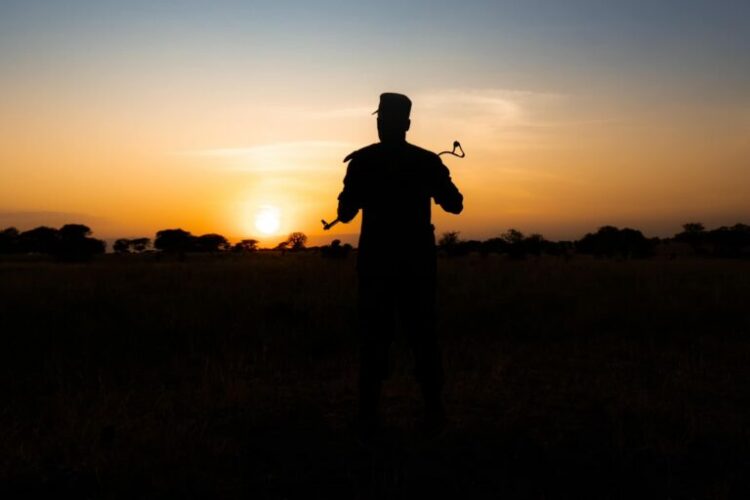Nine months after its Inspection Panel registered allegations of gross human rights violations linked to a $150 million project in southern Tanzania, the World Bank has suspended further payments.People living near one of the project sites, Ruaha National Park, accuse rangers of killings, sexual assault and livestock seizures as well as preventing farmers from accessing their land in connection with a project aimed at improving management and infrastructure at the park.The government has also announced plans to expand the park’s boundaries, a move that residents say will mean 21,000 people will be forcibly resettled.The bank has sent a high-level delegation to Tanzania to look into the allegations; a separate investigation into whether the financial institution has failed to monitor and act on violations of its social and environmental policies is ongoing.
The World Bank has suspended funding for a $150 million tourism project in southern Tanzania in response to allegations of forced evictions, killings and other violations of people’s rights in Ruaha National Park.
“We have recently received information that suggests breaches of our policies in the implementation of the Regrow project,” a World Bank spokesperson told Mongabay via email, adding that the World Bank is “deeply concerned about the allegations of abuse and injustice related to the Resilient Natural Resources Management for Tourism and Growth (REGROW) project in Tanzania.”
A high-level delegation from the World Bank has been sent to Tanzania to look into the accusations made against the REGROW project.
“This [suspension] is a big deal,” Anuradha Mittal, the founder of the Oakland Institute, told Mongabay in a phone interview. “It is not often that funding of a project is stopped while an investigation by the Inspection Panel is happening.”
With support from Mittal’s Oakland Institute, villagers filed a complaint with the Bank’s independent watchdog, the Inspection Panel, in June 2023, accusing Tanzania National Parks rangers of extrajudicial killings, the disappearance of community members, sexual assaults and seizing cattle seizures from pastoralists with “extreme cruelty.” They also alleged that more than 21,000 people have been threatened with involuntary resettlement.
Zebras, Ruaha NP, Tanzania. Image by Bibi Eng (CC BY-NC-SA 4.0)
Since submitting the formal complaint, the Oakland Institute has reported further cases of abuse by rangers, including seizing thousands of cattle from pastoralists and preventing farmers from accessing their land in the first months of 2024. In October last year, villagers said a herder was killed, allegedly by rangers. That same month, the Tanzanian government issued a notice confirming plans to expand the park’s boundary to double its size, requiring thousands of villagers to leave their homes.
Villagers who filed the complaint, speaking anonymously for fear of retaliation, want the REGROW project to be stopped.
“I wish that they would face penalties and have to refund the spent money,” one member of an affected community told the Oakland Institute.
Ruaha is one of four sites in southern Tanzania where the REGROW project is intended to develop the tourism potential by strengthening management and infrastructure of protected areas, as well as improving alternative livelihoods for people living near these parks.
Since launching the program in 2017, the World Bank has paid $100 million to the Tanzanian government; $35 million of this was released after receiving the formal complaint in June 2023.
The Inspection Panel’s investigation is ongoing. The panel will review the bank’s assessment of Tanzania National Parks’ ability to carry out the project and the finance institution’s subsequent supervision of its project partner.
The panel decided that villagers’ claims that they face eviction from their homes and involuntary resettlement elsewhere were “not applicable” to its investigation of the project, but the high-ranking mission to Tanzania that has now been announced is a separate process, which Mittal said will look into all of the complaints: “The delegation’s visit will be more thorough than the Inspection Panel’s investigation.”
One member of an affected community said they welcomed suspension of funding, but expected still more decisive action to follow.
“First of all, suspension of disbursement of money to the REGROW project came too late. We have been struggling against this criminal financing for more than a year,” they told the Oakland Institute.
“People were killed and livestock confiscated, making families poorer. Secondly, out of the $150 million, $100 have already been disbursed. This is including $35 million released at the time when we, the victim, has already called for investigation. And suspension of the project is not enough. It has to be stopped and disciplinary and legal actions be taken against staff of the World Bank who played blind to these atrocities.”
Tanzania National Parks and the Tanzanian Ministry of Natural Resources and Tourism have not responded to Mongabay’s request for comment.
World Bank accused of supporting evictions, rights abuses at Tanzanian park
CORRECTION (Apr. 25, 2024): This story originally misquoted Anuradha Mittal as saying the REGROW case is just the second time funding for a project is stopped while an Inspection Panel investigation is underway; she in fact said that such a suspension is uncommon. Mongabay regrets the error.
Banner image: Tanzania National Parks ranger. Image by Tanzania National Parks. (Fair Use)
FEEDBACK: Use this form to send a message to the author of this post. If you want to post a public comment, you can do that at the bottom of the page.
Source link : https://news.mongabay.com/2024/04/human-rights-allegations-prompt-world-bank-to-freeze-projects-funds-in-tanzania/
Author :
Publish date : 2024-04-25 07:00:00
Copyright for syndicated content belongs to the linked Source.
